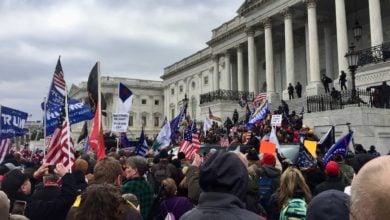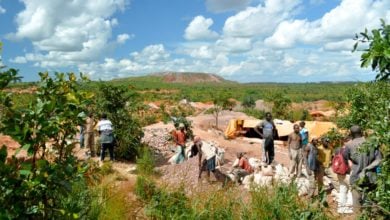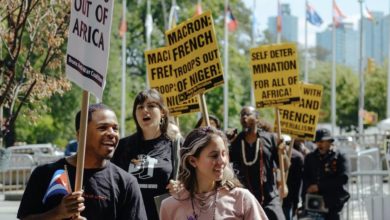In South Africa, over 1 million public sector employees are
on an indefinite strike, demanding an 8.6 percent wage increase and a R1000
($136) housing allowance. However, the South African government rejects their
demands and insists that it cannot afford more than a 7 percent wage increase
and R700 ($95) housing allowance. Although the two sides are currently in
negotiations over the terms of increase, this massive strike action represents
another turning point in the South African people’s struggle for a genuine
democracy.
|
|
Instead
of addressing the legitimate concerns of the public sector employees, the
government and much of the private South African media are portraying the
workers as “irresponsible” and “disorderly” for fighting back. A labor court
recently banned workers in some service sectors like health care from taking part
in the strike at all. Striking workers have also been met with aggression from
the police.
South Africa is the continent’s largest economy, but its economic success is dependent
on foreign investment from bankers and corporate capitalists that profit from
the export of cheap mineral resources and relatively low labor costs. Workers
in such a capitalist system are viewed not as people entitled to democratic and
workers’ rights but as potential threats to the super-profits of the rich.
As the global economic crisis deepens and capitalism shifts
the burden of sacrifice onto the backs of the working class, public and private
employees in South Africa, and other neighboring African nations, will turn
toward militant workers’ activities to defend their rights. South Africa is
just one of a handful of other economically developing countries that are
facing mounting pressure from workers for better pay.
Since the fall of the racist apartheid regime and the beginning of democratic
majority rule in 1994, South Africa has been governed by a tri-party alliance
between the ruling African National Congress (ANC), the South African
Communist Party (SACP) and the Congress of South African Trade Unions (Cosatu).
The ANC
played an invaluable role in the historic defeat of apartheid in South Africa.
However, the racist apartheid state gave way to Black majority rule under the
rubric of the capitalist state rather than through a social revolution. This
goes a long way to explain the enduring hardships still facing South Africa’s
working class.
The current struggle over public sector wages in South Africa underscores the contradictions
for progressives there who try to juggle between being part of a capitalist government
and the interests of trade unionists and the working poor who suffer the consequences
of the economic crisis.
Both COSATU and SACP have announced their unconditional support for the
striking public employees, recognizing that the mass action indicates a
developing anti-capitalist tidal wave in South Africa. However, as members of a
government that is refusing to meet the demands of the workers, they, too, face
the possibility of being swept away in the court of public opinion. The battle
against capitalism in South Africa makes clear the need for strikers, social
movements, and revolutionary political formations to work together to create
sustained expressions of working-class political power, their most powerful
tool in presenting a counter-vision to the prevailing policies of capitalism.
“A luta continua!” (“The struggle continues!”)







